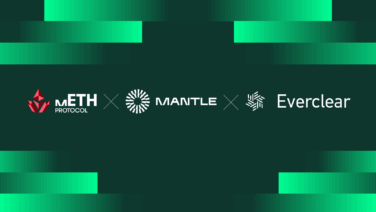Global Digital Cluster Coin (GDCC) is now available on LBank and GDCC is expected to be listed on more exchanges in the upcoming days. The GDCC/USDT trading pair is now officially available to trade for LBank exchange users.
Moreover, investors interested in the Global Digital Cluster Coin investment can easily buy and sell GDCC tokens on LBank Exchange now. The listing of GDCC tokens on LBank Exchange will undoubtedly help to further expand its business and draw more.
Overview of Global Digital Cluster Coin
Global Digital Cluster Coin (GDCC) is a blockchain-powered platform with its own cryptocurrency. This distributed ledger technology makes the platform secure, transparent, and immutable, allowing GDCC to accumulate value.
GDCC has a maximum supply of 7 million (i.e. 7,000,000), and a total supply of 1.9 million (i.e. 1,900,000) tokens. 50 % of the GDCC miner fee is distributed to locked staking holders and 50% will be for the development of the ecosystem pool. From the ecosystem development pool up to 10 % will be burnt. When the total supply reaches 1.2 million (i.e. 1,200,000) GDCC. It is the first blockchain that the public manages with no individual entity, company, or group holding any coins. This will undoubtedly make GDCC deflationary.
Global Digital Cluster Coin (GDCC) is a new-age protocol that caters to Web 3.0 services and community-driven technology. Allowing users to build their dApps and serving as a hub for digital assets, international payments, and applications. Because the protocol is open to all, anyone in the world with an internet connection can access the system at any time.
As a peer-to-peer network that allows users to conduct transactions directly with the person in question, GDCC eliminates the need for intermediaries. Because no entity or institution controls it. And no one can impose restrictions on the process of receiving payments or using on-chain services.
On Global Digital Cluster Coin, blockchain developers can create a wide range of applications, including decentralized applications and wallets. Utility applications have unlimited privileges because the network allows them to deploy and execute smart contracts.
Functionalities of Global Digital Cluster Coin
Global Digital Cluster Coin will also launch its own decentralized exchange, to provide direct custody of funds to users. Hopium, GDCC’s decentralized exchange, will provide a seamless and hassle-free crypto trading experience to its community as a protocol developed by the community for the community. Because of the non-custodial nature, users will be fully responsible for all of their funds/transactions. And the platform will not interfere at any cost.
The platform uses the Automated Market Maker model, which is made up of self-executed protocols capable of managing the liquidity pool on its own. Liquidity providers will support these pools who will provide the tokens used to create the pairs. These liquidity providers will be compensated with “liquidity tokens” based on their contribution to the liquidity pool. Users can redeem liquidity tokens for the underlying shares.
The GDCC’s Muzella platform, as a creator-centric marketplace, provides wonderful opportunities for creators by acknowledging their masterpieces. Users will be able to mint NFTs, and the marketplace gives users immutable ownership rights to the NFTs they hold. The platform also enables users to trade NFTs instantly, ensuring a high level of liquidity for holders. The marketplace will have an exclusive collection of rare and branded NFTs that will add unique value to the portfolio of the holder. In addition, users can connect to different blockchain networks with the help of cross-chain functionality.
Last but not least, as a compatible network, GDCC enables users to create tokens. To create their own token, issuers must provide a token name, total token supply, the exchange rate to GDCC, market cap, circulation duration, description, website, frozen token quantity, and so on. The GDCC-20 standard is the technical standard for smart contracts. That generates tokens that are compatible with the GDCC virtual machine. This standard is compatible with the GDCC-20 token standard used by GDCC.
.








